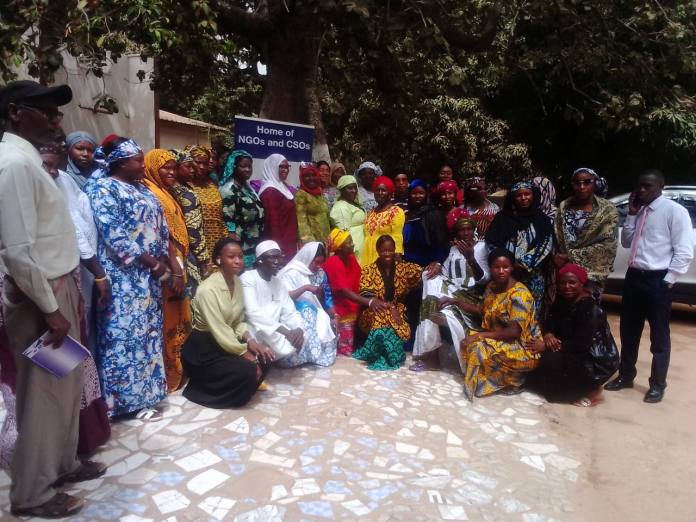By Amadou Manjang
The Association of Non-Governmental Organisations (TANGO), with support from the United Nations Development Programme (UNDP), has sensitised 45 women leaders, lady councillors, and ward councillors on the recommendations of the Truth, Reconciliation and Reparations Commission (TRRC), the government’s white paper, and post-TRRC developments.
The initiative, which is part of a nationwide awareness campaign, is currently being implemented across all regions of the country. A similar session is presently underway in Wassu, Central River Region.
Speaking during the session, Amie Touray, a representative of TANGO, emphasised the importance of popularising the TRRC recommendations and the government’s white paper among the population to help track progress in their implementation.
“This programme is designed to examine the TRRC recommendations and evaluate how far the government has gone in implementing them. It also presents an opportunity for participants to gain clarity on what has been done post-TRRC,” she said.
Touray added that misinformation and confusion surrounding the TRRC recommendations persist among the public, but the programme aims to dispel such misconceptions.
TANGO’s Programme Manager, Alagie Cham, stressed the significance of involving women leaders in the sensitisation effort, noting that their understanding of the TRRC recommendations is essential for broader national awareness.
“The TRRC did an excellent job in gathering testimonies and evidence, but many people remain unaware of the government’s white paper on its recommendations,” Cham said.
He explained that TANGO’s role is to bridge that information gap by ensuring the public is well-informed. “If people are not aware of the recommendations and white paper, they cannot demand accountability or take action,” he said.
Cham encouraged participants to share the knowledge they gained with their communities, noting that public awareness is key to ensuring justice and reconciliation in the country’s post-TRRC era.


















